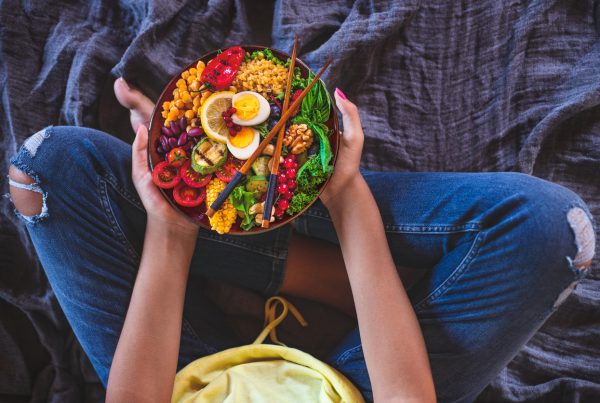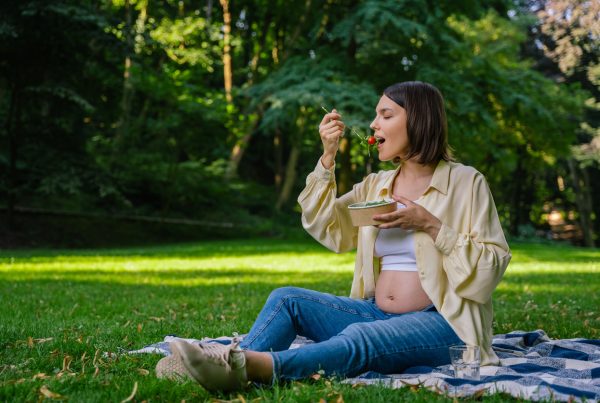Six companies turning food waste into snacks and drinks
The Food and Agriculture Organization of the United Nations states that roughly one third of the food produced in the world for human consumption every year – approximately 1.3 billion tonnes – gets lost or wasted. We round up six businesses tackling food waste and turning it into snacks or drinks.
Turning food waste into food products
Snact makes handmade fruit jerky and banana bars
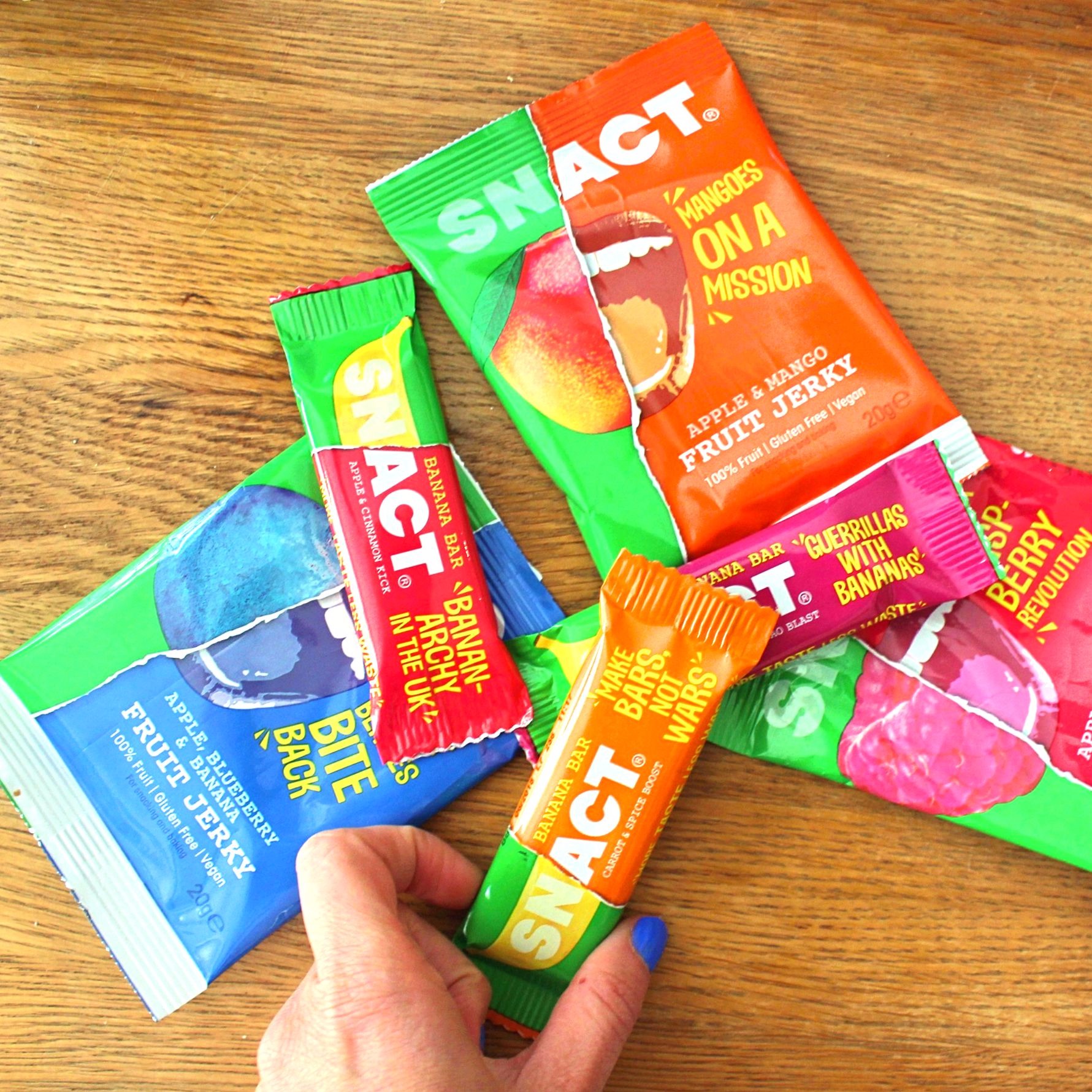
Ilana Taub says, “We have sustainability backgrounds and master’s degrees in environmental technology, so we’re aware of the challenges our planet faces, like climate change, resource depletion, water management, pollution and so on. We wanted to start a business with an environmental mission; as the food system is so environmentally intensive and we all interact with food every day, we felt food was a good touchpoint to get people thinking about sustainability. We also wanted to tackle food waste.
“Our banana bar has no additives or flavourings. For the bar, we rescue some of the 1.4 million bananas wasted in the UK every day. One day we might get a call asking us to take 22 tonnes of bananas tomorrow! We’re working with an innovative firm that produces compostable plastic that decomposes in six months in your home compost.
“If you want to become more sustainable, educate yourself on the environmental impact of the food you eat and its packaging. Eat less – and better quality – meat (from small farmers, not factory-farmed).”
Rubies in the Rubble makes relish from food waste
On a mission to “encourage people to waste less, treasure their resources and live more sustainably” one jar at a time, Rubies in the Rubble works directly with farmers, utilising surplus produce to make a range of condiments including Spicy Tomato Relish, Pink Onion & Chilli Relish, London Piccalilli Relish, Banana Ketchup, Chipotle Ketchup, and Fiery Ketchup.
ChicP makes sweet and savoury hummus from surplus veg
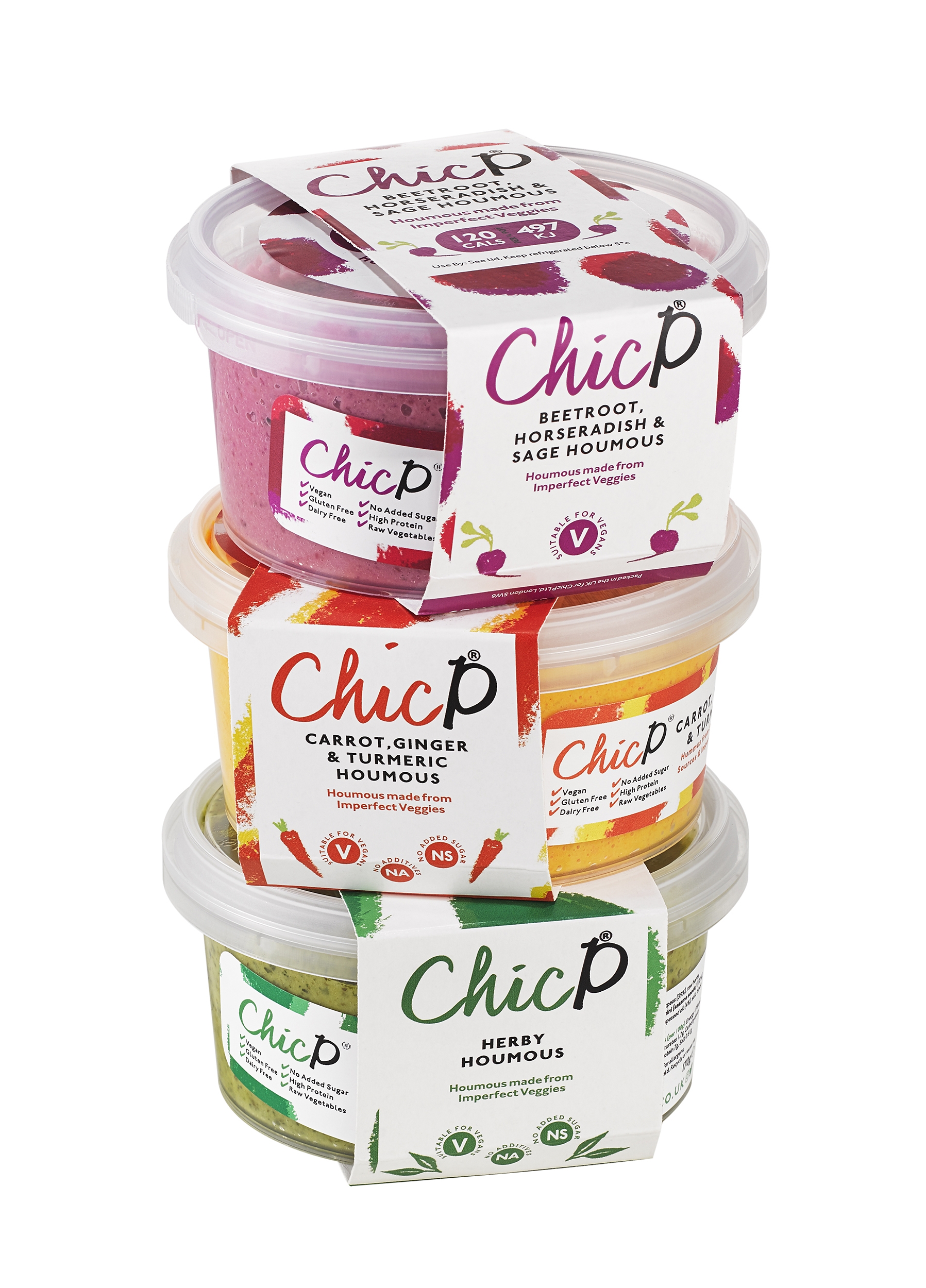
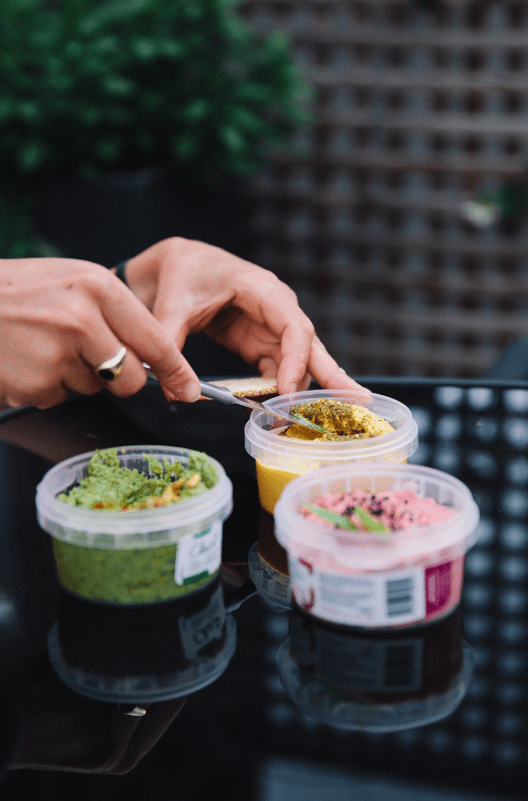
Hannah McCollum says, “In catering I saw so much good food going to waste due to health and safety. We’re killing animals and putting them in the bin, which is not OK. I work with various wholesalers and use the non-aesthetic vegetables, and am looking forward to working with farmers directly, using vegetables they are unable to sell. I don’t know where the perception came from that everything has to be perfect. If vegetables aren’t all the same colour, for instance, they get downgraded, which doesn’t make any sense and causes economic damage to the growers.
“[To become more sustainable], gyms could have signs reminding people to bring their own bottle. Also, try to buy seasonal UK products in recyclable packaging and freeze, bake and blend everything – any veg going off can be blended or roasted and it’ll be fine. Use your common sense and try food before taking the use-by dates too literally. Gyms could focus more on recycling, making sure they have a proper system.”
Turning waste into drinks
Rejuce makes cold-pressed juice using ugly fruit and veg
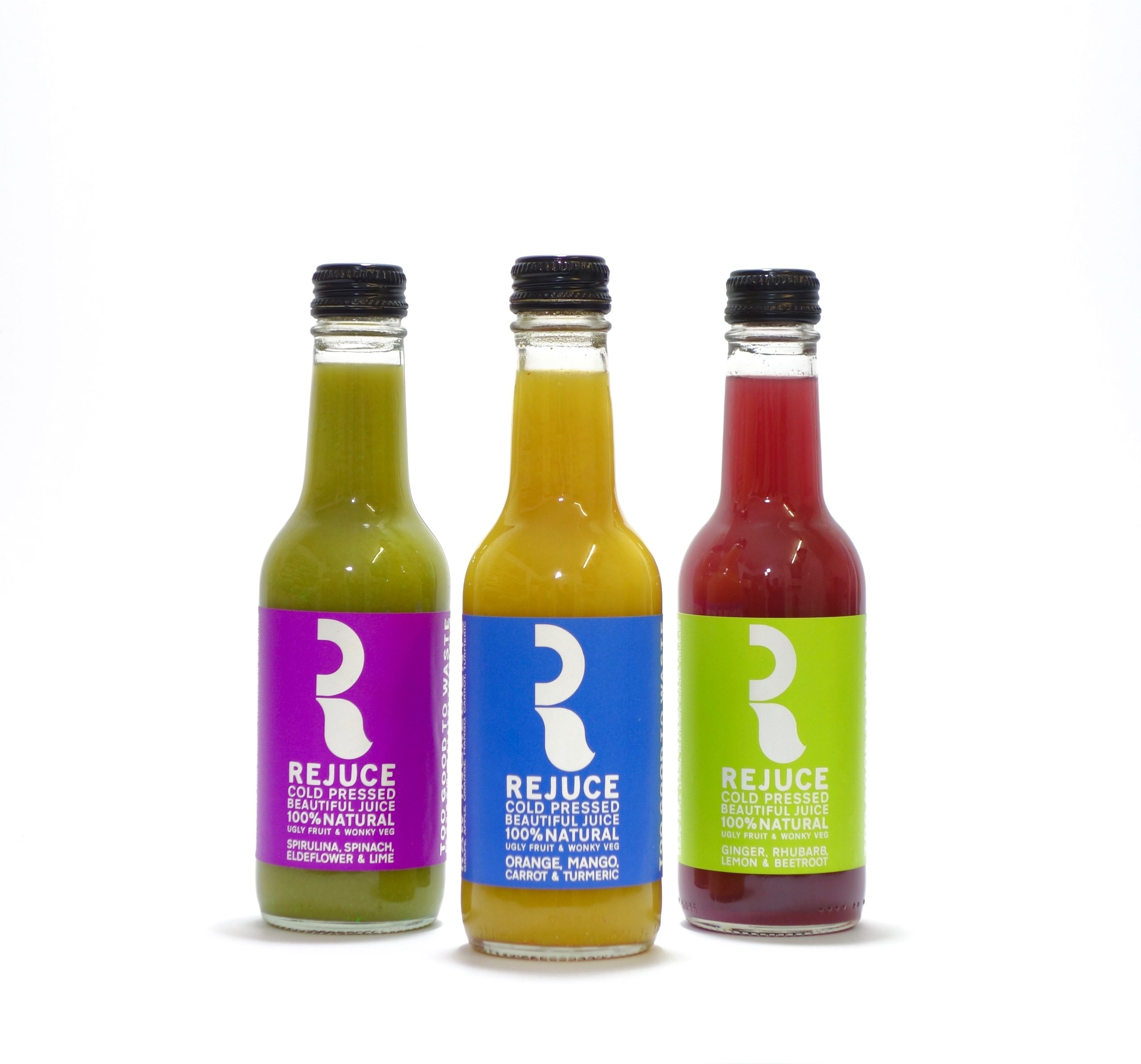
Tom Fletcher says, “When I set up Rejuce I had people saying it’s illegal – past its sell-by date. I’d say, ‘These are apples. If all these apples fell off the same tree and landed in the same box they’d go off at different times anyway, so what’s the point of a date?’
“We save as much food waste as possible. We give our pulp to agricultural waste and insect manufacturing because we realise the meat industry is an environmentally bad beast. While a lot of animals are fed with soy, it’s more sustainable to feed them crickets bred in the UK – they’re higher in protein, haven’t travelled far and don’t cause deforestation. We seem to think recycling is the best method but it’s not – reducing what we eat and produce will make the biggest difference to how we live on this planet. I’d like Rejuce to be a platform that inspires people to create businesses that are sustainable. I want them to wonder, ‘Why aren’t I doing this?’
“[To reduce your waste], plan meals and make extra for a freezer full of readymade meals free from preservatives. Swap them with friends. To become sustainable, we’ll lose some standard of living but we’ll drastically improve our quality of life and health. When you consider only two out of five mangoes from Senegal make it in one piece, I’d say the Senegalese should eat their mangoes and we should eat more apples! We need to lose the convenience in our throwaway culture to be sustainable – we can’t have cherries all year round.”
Toast Ale uses bread to make brew
Toast, founded by Tristram Stuart – who also founded food waste charity Feedback – partnered with Hackney Brewery to launch a brew made using surplus bread. According to Toast, the bread that is wasted in the UK (around 44% of the bread made here) could be used to lift 26 million people out of hunger. All profits from Toast sales go to Feedback, which aims to help end food waste.
Get Wonky makes gluten-free drinks from wonky fruit
Get Wonky supports farmers who are unable to sell their wonky produce and makes gluten- and additive-free drinks from fruit of all shapes and sizes. Packed in 100% recyclable glass bottles, the brand also aims to reduce plastic consumption. Flavours include Apple and Strawberry, Sweet and Sour Apple, Apple and Beetroot, and Apple and Chokeberry.
For more information about sustainable living, check out the summer edition of Fitpro magazine, out now!
Where to next? Check out the fitness festivals you could be teaching at.





